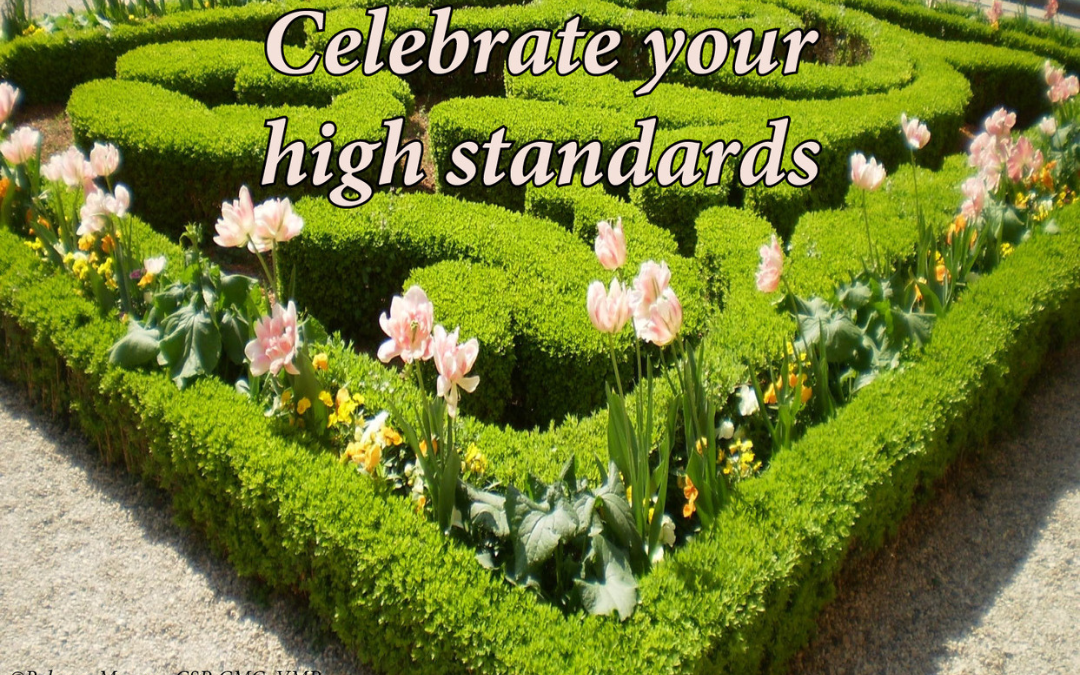Do you have high standards? If so, I hope you’re proud of that fact.
I have high standards for myself, as well as those with whom I work. I don’t accept below par performance unless one is learning a new task. Few people excel when doing something new.
So when I was told I had high standards, I thought it was a compliment. Then I was puzzled when I realized it wasn’t. This happened where I couldn’t ask many details, but I summarized I was being criticized for holding others to high standards on a recent project. I didn’t think I had insisted on high standards, or had been critical of others, but instead had insured that minimum standards were met. Interesting that my minimum standards were considered high by them. I wonder what they would have settled for if I hadn’t been around.
Standards show you have some criteria by which to measure performance. Was it good, or does it need improvement? You apply these criteria to yourself, and if applicable, to your team.
Some standards are objective — did you ship the product on time or not? Others are subjective. That’s where things get dicey. Your assessment of something passing muster or not can differ from your colleagues’ assessment. Some can tire of your insistence on excellence.
Of course, some things are fine at good enough. They don’t need excellence. Digging a hole for a plant doesn’t have to be measured to be exactly eight inches. Seven or nine inches will suffice. But if you’re drilling a hole for an 8″ pipe, a 7″ hole won’t work.
Knowing when high standards are needed is important, as is knowing when they aren’t. But when they are, ignore anyone criticizing you for them.

